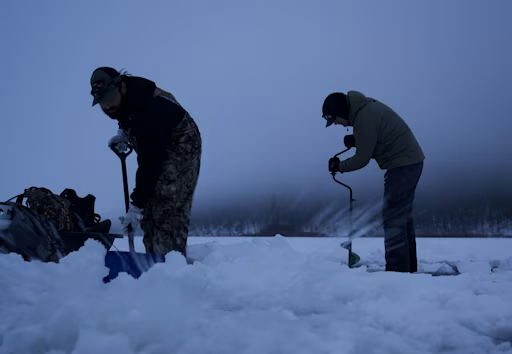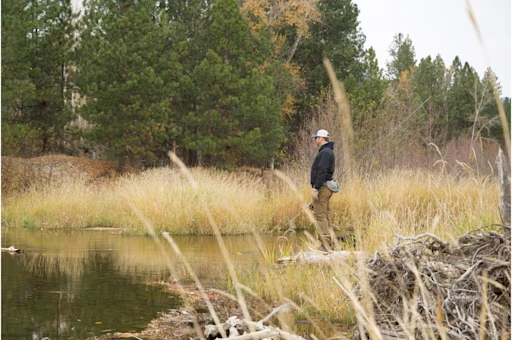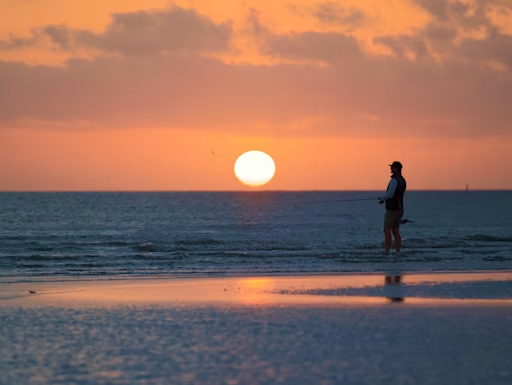Safe fish handling this Summer
Summer is here and we asked our fisheries biologist Ryan Hearn how you can handle fish safely during the summer heat.
Share this article

Summer is an all time favorite season for fishing. The days are long, the weather is perfect to be on the water and fish are aggressive. The flipside of summer is handling fish safely, during high summer temps. Different species have different needs around the country. Cold water, horizontal handling and reduced air exposure all play a part in improving a fish’s chances of survival.
Preserving species populations is one of our most important values at Fishbrain. We talked with our resident Fisheries Biologist Ryan Hearn to provide some important fish handling tips for some of the most popular species found across the country.

General tips
Ideal temperatures:The hotter it is, the longer the fight (especially against current and with too light of gear) and the bigger the fish means the more stress that is applied to the fish and thus reducing survival odds of a release.
Safe handling specifics: It’s best practice to not remove fish from the water, but if you do, do not hold large fish vertically (can decompress spine), support horizontally with two hands. Do not leave fish out of water for more than ~2 min. Large fish should be weighed with a weigh sling. It's okay to weigh smaller fish with a fish lipper scale. Never weigh fish through the gills, and never place the fish on rocks, sand, mud, etc., this will remove their slime coat. Instead, leave the fish in the water in the net until you want to take a picture or place it on a wet landing mat. Try to also have wet hands when dealing with fish, this will also help reduce the removal of their slime coat. Don’t throw fish back in the water, place them in water horizontally and help it push water through the gills by gently moving it back and forth.
Handling gear: Landing mat, rubber landing net, weigh sling, fish lipper scale.

Trout
Ideal water temperatures for fishing and safe handling: Fishing for trout in hot weather can be hard on these cold water species and can even be shut down if the weather and water get too hot. Brown and rainbow - 45-65 Brook - 45-60 Cutthroat - 39-58
Safe handling specifics: Especially important to fish for trout within their temperature range because of their reliance on cold water. Also incredibly important to leave in the water in a rubber or net or to wet your hands before removing from the water, both to protect their fish slime and to protect their thermal regulation. While not necessary, barbless hooks and artificial baits rather than natural baits increase their survival odds more than other fish because of their fragile jaws.
Gear that can make handling safer: rubber nets, barbless hooks and artificial baits

Striped bass
Ideal water temperatures: 55-68
Safe handling specifics: Okay to lip and hold vertically for small stripers. Do NOT hold horizontally or diagonally without supporting the belly, not doing so can lead to a broken, or dislocated jaw. Obviously do not gaff - illegal in most states.
Handling gear: rubber landing net

Largemouth bass
Ideal water temperatures: 70-85 (Also very dependent on region and strain)
Safe handling specifics: When fishing for bass in hot weather its still okay to lip and hold vertically up to ~3lbs, just be aware of how long you hold them out of the water in the heat of the day. Do NOT hold them horizontally or diagonally without supporting the belly. Not doing so can lead to a broken, or dislocated, jaw. Weigh with fish lippers rather than scales meant to go through the gills. Avoid bedding bass as they are spawning to help protect future generations of bass.
Handling gear: Fish lipper scale, rubber landing net

Smallmouth bass
Ideal water temp: 55-75
Safe handling specs: Okay to lip and hold vertically up to ~2lbs, as they have smaller and more fragile jaws than Largemouth. Do NOT hold horizontally or diagonally without supporting the belly, not doing so can lead to a broken or dislocated jaw. Weigh with fish lippers rather than scales meant to go through the gills.
Handling gear: Fish lipper scale, rubber net

Walleye
Ideal water temp: 50-70
Safe handling specs: Need to be much more wary of high water temps in summer, as heat can stress walleye significantly more than other fish it coexists with. If you’re fishing in ~25ft or more be very mindful of reeling it in too quickly to avoid barotrauma (in case of necessary release, or catch and release)
Handling gear: Fish lipper scale, rubber landing net

Chinook salmon (kings)
Ideal water temp: 45-55 (temps over 60 can seriously stress fish)
Safe handling specs: Salmon in rivers are traveling upstream to spawn. If you’re planning on releasing a salmon it's important to use safe handling practices as you are holding the future of the species. River anglers should use rubber nets to protect the fish’s slime and reduce loss of scales. Chinook are endangered in some tributaries and threatened in others, therefore anglers should keep them in the water as long as possible if catching and releasing. Boat anglers in saltwater should use similar nets and a dehooking tool to avoid contacting fish that will be released.

Coho salmon (silvers)
Ideal water temp: 44-54 (temps over 60 can seriously stress fish)
Safe handling specs: Like Chinook, silver salmon are threatened in certain river tributaries. If you are catching and releasing, always practice safe fish handling by keeping them in the water as long as possible and using rubber nets. Never hold a salmon vertically, instead support their body horizontally. Rubber nets are important to protect slime and scales and avoid using lip grippers and use dehooking devices when you can.

Tarpon/White sturgeon
Safe handling specs: These are examples of species that cannot be removed from the water safely over a certain length - regulations often reflect this making it illegal to remove the fish from the water. Always check your local regulations regarding removing large fish from the water.

Grouper/Rockfish/Snapper
Safe handling specs: Examples of saltwater fish that frequently experience barotrauma. Barotrauma occurs when gasses in a fish’s swim bladder expand on the way to the surface. Signs of barotrauma include bulging eyes, the stomach protruding through the mouth, a bloated belly, protruding intestines, and bubbling scales. The deeper the fish is caught, the higher the likelihood that it will experience barotrauma. If you catch a fish that is experiencing barotrauma you should utilize a descending device.The descending device is typically attached to the fish's jaw or a special harness. The device includes a weight that allows the fish to be lowered back to the appropriate depth. Once the fish reaches the desired depth, the device has a release mechanism that detaches the fish. Some devices are designed to release automatically at a pre-set depth, while others require it to be manually released by the angler. You can learn more about barotrauma and descending devices by reading our blog here. Or visit Return Em Right’s website here to learn about acquiring a descending device.
Handling gear: Descending device

There’s no better time to be on the water with a rod and reel than summer. We hope everyone experiences the equal excitement and peace that comes with fishing this summer, while always taking the best care of the fish we catch. Handling fish properly is the step in ensuring healthy fish populations for us and for the next several generations of anglers.
Now let’s go fishing. We’ll bring the rubber net.
If you haven't experienced the #1 fishing app worldwide, make sure and check out Fishbrain to see all the fish data, fishing spots, weather conditions you've been missing out on plus much more.

Download the Fishbrain app and access the best fishing spots in your area
Related blog posts
Discover the best spots, techniques, and gear for successful fishing in urban areas and city waters on Fishbrain.

Master the hardwater season with advanced ice fishing tips . Learn how to find fish faster, refine your search and adjust presentations to catch more fish all winter long.

Your guide to Victoria’s best fish to catch in rivers, lakes, and coastal waters. Learn prime species, fishing tips, and key regulations




